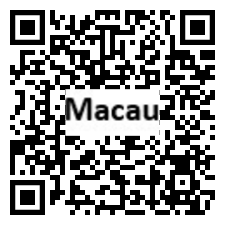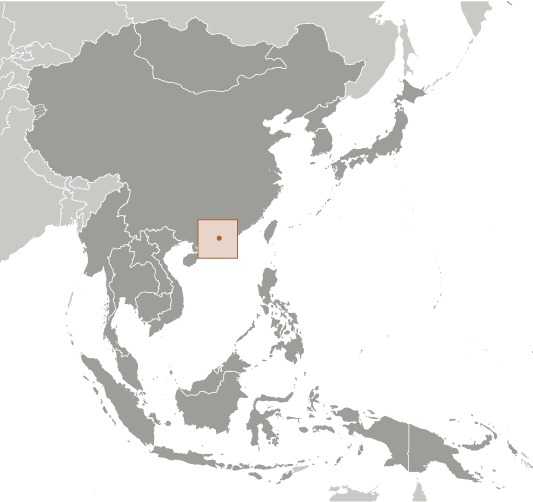Introduction
Background
Colonized by the Portuguese in the 16th century, Macau was the first European settlement in the Far East. Macau became the Macau Special Administrative Region of the People's Republic of China in 1999. China promised that, under its "one country, two systems" formula, China's political and economic system would not be imposed on Macau, and that Macau would enjoy a "high degree of autonomy" in all matters except foreign affairs and defense for the next 50 years.
Geography
Area
total : 28 sq km
land: 28.2 sq km
water: 0 sq km
Climate
subtropical; marine with cool winters, warm summers
Natural resources
NEGL
People and Society
Population
total: 644,426
Ethnic groups
Chinese 89.4%, Chinese and Portuguese 1%, Portuguese 0.8%, Chinese and non-Portuguese 0.2%, Portuguese and others 0.2%, other 8.5% (2021 est.)
Languages
Cantonese 81%, Mandarin 4.7%, other Chinese dialects 5.4%, English 3.6%, Tagalog 2.9%, Portuguese 0.6%, other 1.8%; note - Chinese and Portuguese are official languages; Macanese or Patua, a Portuguese-based Creole, is also spoken (2021 est.)
Religions
folk religion 58.9%, Buddhist 17.3%, Christian 7.2%, other 1.2%, none 15.4% (2020 est.)
Population growth rate
0.67% (2024 est.)
Government
Government type
executive-led limited democracy; a special administrative region of the People's Republic of China
Executive branch
chief of state: President of China XI Jinping (since 14 March 2013)
head of government: Chief Executive HO lat Seng (since 20 December 2019)
Legislative branch
description: unicameral Legislative Assembly or Regiao Administrativa Especial de Macau (33 seats; 14 members directly elected by proportional representation vote, 12 indirectly elected by an electoral college of professional and commercial interest groups, and 7 appointed by the chief executive; members serve 4-year terms)
Economy
Economic overview
high-income, Chinese special administrative region economy; known for apparel exports and gambling tourism; currency pegged to Hong Kong dollar; significant recession due to 2015 Chinese anticorruption campaign; COVID-19 further halved economic activity
Real GDP (purchasing power parity)
$71.837 billion (2023 est.)
$39.791 billion (2022 est.)
$50.626 billion (2021 est.)
Real GDP per capita
$102,000 (2023 est.)
$57,200 (2022 est.)
$73,700 (2021 est.)
Agricultural products
pork, chicken, beef, eggs, pork offal, pork fat, pepper, beef offal, cattle hides, goose meat (2022)
Industries
tourism, gambling, clothing, textiles, electronics, footwear, toys
Exports
$20.985 billion (2022 est.)
$28.163 billion (2021 est.)
$15.578 billion (2020 est.)
Exports - partners
Hong Kong 65%, China 8%, US 7%, Switzerland 3%, Israel 2% (2022)
Exports - commodities
jewelry, garments, broadcasting equipment, precious metal watches, trunks and cases (2022)
Imports
$21.795 billion (2022 est.)
$23.769 billion (2021 est.)
$15.214 billion (2020 est.)
Imports - partners
China 39%, Hong Kong 25%, France 5%, Italy 4%, US 3% (2022)
Imports - commodities
jewelry, garments, electricity, broadcasting equipment, trunks and cases (2022)
Exchange rates
patacas (MOP) per US dollar -
Page last updated: Wednesday, July 24, 2024




